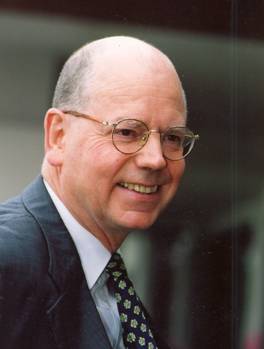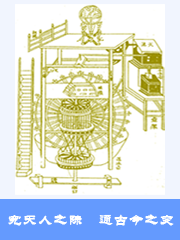- The history of the German encounter with Chinese medicine from its beginnings in the 17th century to the present
Update Time:
2014-02-26
中国科学院自然科学史研究所学术报告
文树德教授(Prof. Paul U. Unschuld)

德国人接触中医的历史:从十七世纪初识到当今
The history of the German encounter with Chinese medicine from its beginnings in the 17th century to the present
2009年9月11日 下午14:00-15:30
中国科学院自然科学史研究所大会议室
北京市朝内大街137号
报告内容简介:
In the late 17th century, Andreas Cleyer, a German physician in the service of the Dutch East India Company published, in Latin language, a book on Chinese medicine. Ever since, knowledge on the Chinese tradition of interpreting and dealing with health and disease has been presented by authors with various backgrounds to the German public. Stimulated by French colleagues, a “German Physicians’ Association for Acupuncture” was founded in the early 1950s. However, it was only in the 1970s, following the “opening of China”, that the German public became familiarized with so-called TCM and acupuncture on a grand scale. In the meantime, countless German and Chinese practitioners with varying backgrounds of training an expertise have set up privately owned clinics and work in hospitals all over the country. Attempts at explaining the effects of acupuncture by modern scientific methods have been undertaken by some research institutes. Still, TCM and acupuncture have remained marginal in the German health care delivery system, and will, most likely, not be able to have a stronger impact despite strong lobbying efforts supported by the Chinese government. This lecture will trace the historical phases of the German encounter with Chinese medicine, and it will offer some interpretations of, first, why TCM and acupuncture have been welcomed in recent decades by some parts of the German public, and, second, why TCM and acupuncture will remain of little influence on general health care in future.
报告人简历:
Paul U. Unschuld, Ph.D., M.P.H.
Professor and Director
Horst-Goertz-Institute for the Theory, History and Ethics of Chinese Life Sciences
Charité-Medical University Berlin
Schumannstr. 20/21
D-10117 Berlin
Phone: xx49-30-450 529 351
1. Personal Data:
Date of Birth: August 19, 1943
Birth Place: Lauban, Silesia, Germany
Married to Ulrike Unschuld, Ph.D., since 1968
Three children (Paul Gerson, Janna Ruth, Sophia Magdalene)
2. Academic Training:
School of Pharmacy (Munich University, graduated 1968)
Chinese Studies, Political Sciences (Munich University, Ph.D. 1971, summa cum laude)
Public Health (Johns Hopkins University, Baltimore, M.P.H. 1974)
"Habilitation" in History of Pharmacy (Marburg University, 1979)
"Habilitation" in History of Medicine (Munich University, Dr. med. habil., 1982)
"Habilitation" in Chinese Studies (Munich University, Dr. phil. habil., 1983)
3. Academic Positions:
Assistant Professor, Department of Behavioral Sciences and Department of International Health, School of Hygiene and Public Health, The Johns Hopkins University, Baltimore 1975-1977.
Visiting Assistant Professor 1977-1979
Visiting Associate Professor 1979-1985
Heisenberg grantee of the German Research Association 1979-1983
Professor (C2), Munich University, Institute of the History of Medicine, 1984-1986
Full Professor (C4) and Director, Munich University, Institute for the History of Medicine, 1986- 2006.
Fellow, Institute for Advanced Study Berlin 1998-1999.
Director, Horst-Goertz-Institute for the Theory, History, and Ethics of Chinese Life Sciences, Charité – Medical University Berlin, beginning 1.11.2006
4. Further Data:
President, International Society for the History of Science, Technology, and Medicine in East Asia, since 2008
President, East Asia Commission, DHPS/IUHPS/UNESCO, since 2009
Chairman, Advisory Board Max-Planck Research Institute of Psychiatry, since 2005
Redactor, Sudhoffs Archiv. German Journal of the History of Science, Mathematics and Medicine. Since 1977
Member, Editorial Board, Sir Henry Wellcome Series of Asian Monographs. Responsible editor for China and Japan.
Member, Editorial Board, Anthropology and Medicine.
5. Current Major Research Interests:
Comparative History of Chinese and European Medical History.
Comparative History of Chinese and Western Medical Ethics/Bioethics.
Public Health Issues associated with Heterogenous Health Care Systems in Contemporary Western and Non-Western Societies.
6. Current Research Projects Supported (or to be supported) by Third-Party Grants:
Annotated Translation of the Ben cao gang mu, a Chinese encyclopedia of natural history of the 16th century (funded by Volkswagen Foundation), since2008.
Annotated Translation of the Huang Di Neijing Suwen, a Chinese classic compiled between the 1st c. BC and the 11th c. AD (funded by the German Research Association and the Volkswagen Foundation with DM 1.3 Million). To be completed 2009.
Chinese Medical Manuscripts of the Past Centuries as Sources of Unorthodox Knowledge. (funded by the German Research Association)
German Jewish Physicians in the Shanghai exile 1934-1945 (funded by Munich Medical Weekly Editorial Board). Since 1995, ongoing.
Communicative and administrative powers. How diverging public health views on the suitable reaction to HIV/AIDS are translated into administrative action. A comparison of German, Chinese, and American pluralism of perspectives and political reaction in the 1980s (pilot project, funded by the German Research Association)
History of itinerant physicians in China (in preparation)
7. Publications
Numerous books and articles on the history of medicine and pharmaceutics in China, on public health issues associated with alternative health care systems, and on topics from the history of medicine in Europe. See “List of Publications”.




